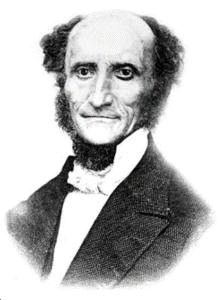A Quote by Geoff Dyer
Cheever constantly voiced doubts about his writing. Reading 'The Naked and the Dead' made him despair of his own 'confined talents.'
Related Quotes
THE WRITER can get free of his writing only by using it, that is, by reading oneself. As if the aim of writing were to use what is already written as a launching pad for reading the writing to come. Moreover, what he has written is read in the process, hence constantly modified by his reading. The book is an unbearable totality. I write against a background of facets.
My God, whose son, as on this night, took on Him the form of man, and for man vouchsafed to suffer and bleed, controls thy hand, and without His behest, thou canst not strike a stroke. My God is sinless, eternal, all-wise, and in Him is my trust, and though stripped and crushed by thee, -though naked, desolate, void of resource- I do not despair:where the lance of Guthrum now wet with my blood, I should not despair. I watch, I toil, I hope, I pray: Jehovah, in His own time, will aid.
The translator ... Peculiar outcast, ghost in the world of literature, recreating in another form something already created, creating and not creating, writing words that are his own and not his own, writing a work not original to him, composing with utmost pains and without recognition of his pains or the fact that the composition really is his own.
If it was a biopic about Glenn Greenwald, I would have immersed myself more fully in his personal life and gotten to know him as much as I could, but because it was much more about his relationship to this particular situation, to The Guardian, to Laura Poitras, and to Ewen MacAskill, and Edward Snowden, I was able to really learn a lot about him from reading his book and reading his many articles and accounts of that time.
Samuel Beckett is the person that I read the most of - certainly the person whose books I own the most of. Probably 800 or 900, maybe 1,000 books of just Samuel Beckett. By him, about him, in different languages, etc. etc. Notebooks of his, letters of his that I own, personal letters - not to me, but I bought a bunch of correspondence of his. I love his humor, and I'm always blown away by his syntax and his ideas. So I keep reading those.
How could one comfort a disturbed person? He is already assailed with doubts about his faith. He would have to despair with such a doctrine. Rather one must seek to convince him that the Savior is there for him, has already forgiven him, and has already accepted him. As soon as one makes faith even in the least a requirement for justification, one takes from such a person all the comfort of the Gospel.
When, on the still cold nights, he pointed his nose at a star and howled long and wolf-like, it was his ancestors, dead and dust, pointing nose at star and howling down through the centuries and through him. And his cadences were their cadences, the cadences which voiced their woe and what to them was the meaning of the stillness, and the cold, and dark.
Keep the extent of your abilities unknown.The wise man does not allow his knowledge and abilities to be sounded to the bottom, if he desires to be honored at all. He allows you to know them but not to comprehend them. No one must know the extent of his abilities, lest he be disappointed. No one ever has an opportunity of fathoming him entirely. For guesses and doubts about the extent of his talents arouse more veneration than accurate knowledge of them, be they ever so great.
The Enemy wants to bring the man to a state of mind in which he could design the best cathedral in the world, and know it to be the best, and rejoice in the fact, without being any more (or less) or otherwise glad at having done it than he would be if it had been done by another. The Enemy wants him, in the end, to be so free from any bias in his own favour that he can rejoice in his own talents as frankly and gratefully as in his neighbour's talents--or in a sunrise, an elephant, or a waterfall.





































